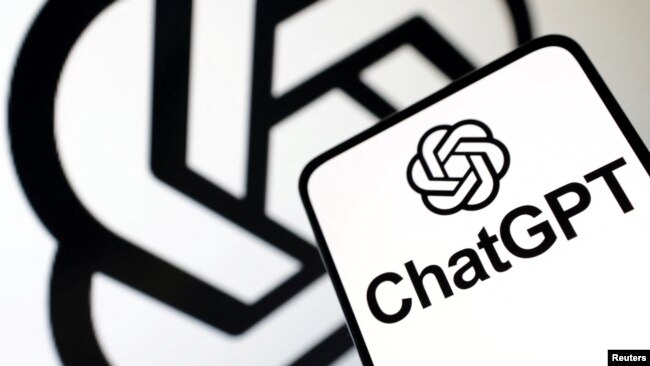AI機能や自動執筆ツールによる出版物、どうでしょう?
出版業界で人工知能プログラムを使って作りられた本が、販売されていたなんて!! 驚きでした!!
VOAで英語を学びましょう!!
ChatGPTを利用して本を作る人、出版する人が増加中(和訳)
More People Using ChatGPT to Create, Publish Book
March 06, 2023
人工知能プログラム ChatGPT を使って本を作り、販売する人が増えています。今のところ売れ行きは芳しくないが、人間の作家は、ChatGPTが作成した本が執筆・出版業界に打撃を与えるのではないかと懸念しています。
ChatGPTによる児童書の作成支援
最近まで、ブレット・シクラーさんは、自分が出版作家になれるとは想像もしていませんでした。しかし、人工知能プログラム ChatGPT を知ったことで、シクラーさんは自分にもチャンスがあると判断しました。
ニューヨーク州ロチェスターでセールスマンをしているシックラーは、「本を書くということが、やっと可能に思えたんです。『私にもできるんだ』 と思ったんです。」と言っています。
AIソフトを使い、シクラーさんは数時間で30ページのイラスト入り子供向け電子書籍を作成しました。彼はそれを1月にアマゾンのセルフパブリッシングコーナーで販売しました。
その電子書籍は The Wise Little Squirrel: A Tale of Saving and Investing, 賢明な小リス:貯蓄と投資の物語、と名付けられました。シクラーさんは100ドル以下の収入になったといいます。しかし、このソフトを使って他の本も作ってみたいと思わせるに十分な金額です。
「このソフトでキャリアを積んでいく人もいるかもしれません」とシクラーさんは言います。
アマゾンのKindleストアには、2月中旬現在、ChatGPTが作家または共同執筆者であると書かれた電子書籍が200点以上あります。しかも、その数は日々増えています。
しかし、ChatGPTの性質上、また多くの作家はこれを利用したことを認めないため、AIによって書かれた可能性のある電子書籍の数を完全に把握することはほぼ不可能です。
効果
プロの作家の中には、ChatGPTが書籍出版業界に与える影響を心配する声も出てきています。
メアリー・ラゼンバーガー氏は、作家の団体であるオーサーズ・ギルドのエグゼクティブ・ディレクターを務めています。彼女は、「これは本当に心配しなければならないことです。これらの本が市場にあふれ、多くの著者が仕事を失うことになるでしょう。」と述べました。
ラゼンバーガー氏は、この業界にはゴーストライティングという長い伝統があり、誰かにお金を払って別の著者の名前で本やスピーチを書いてもらうという慣習が認められていると指摘しました。しかし、彼女は、AIによる創作能力によって、本の執筆が芸術から商品、つまり売買される単純な原材料のようなものに変わってしまうことを懸念しています。
「本がどのように作られるのか、著者やプラットフォームから透明性を確保しなければ、低品質の本が大量に生み出されることになります」と彼女は言います。
ロイターにコメントを求められたアマゾンは、著者がAIやその他の自動執筆ツールを使用することに関する方針を変更したり検討したりする計画があるかどうかについては言及しませんでした。アマゾンの広報担当者リンゼイ・ハミルトン氏は電子メールで、ストアに並ぶ書籍は”知的財産権”やその他の法律に関する同社のガイドラインを満たしていなければならないと述べています。
高速出版
アマゾンは、物理的な書籍と電子書籍の両方で、圧倒的に大きな販売量を誇っています。米国での販売数の半分以上を占め、電子書籍市場の80%以上を占めているとの推計もあります。
2007年、アマゾンは、エージェントや出版社を探す費用をかけずに、誰でも本の販売とマーケティングができるようにするため、Kindle Direct Publishingを創設しました。一般的に、アマゾンは著者を監視することなく出版を許可し、作家と収益を分け合います。
このサービスによって、カミル・バンク氏のような新しいAIアシスト作家がアマゾンに引き寄せられました。彼は妻に1日もかからずに本が作れたと言いました。ChatGPTというAI画像作成ソフトを使い、”子供に正直であることを教えるピンクのイルカのベッドタイムストーリーを書いて”といった指示で、バンク氏は12月に27ページのイラスト入り本を出版しました。
バンク氏はその後、大人の塗り絵を含む2冊のAI生成本を出版しており、さらに多くの本を制作中です。「実際、本当にシンプルなんです。」と彼は言います。「コンセプトから出版までの速さには驚きました。」と。
誰もがこのソフトに感心しているわけではありません。Kindle Direct Publishingで自分で書いた本を何百万部も売ったマーク・ドーソン氏は、ロイターへのメールで、ChatGPTを使った小説をすぐに "dull" と呼びました。dullとは、おもしろくないという意味です。
ドーソン氏は、書籍ビジネスではメリットー褒められるに値する良い性質ーが重要であると述べます。「メリット は、本が他の読者にどのように勧められるかに関わってきます。もし、ある本が文章がつまらないという理由で悪い評価を受けたら、その本はすぐに底辺に沈んでしまうでしょう。」
More People Using ChatGPT to Create, Publish Books
A growing number of people are using ChatGPT, an artificial intelligence program, to create books for sale. Although sales have so far been slow, human writers are worried that ChatGPT-created books might hurt the writing and publishing industry.
ChatGPT helps create a children’s book
Until recently, Brett Schickler never imagined he could be a published author. But after learning about the ChatGPT artificial intelligence program, Schickler decided that he had a good chance.
"The idea of writing a book finally seemed possible," said Schickler, a salesman in Rochester, New York. "I thought 'I can do this.'"
Using the AI software, Schickler created a 30-page illustrated children’s e-book in a few hours. He offered it for sale in January through Amazon’s self-publishing section.
The e-book, which is named The Wise Little Squirrel: A Tale of Saving and Investing, has made Schickler less than $100, he said. While that may not sound like much, it is enough to make him want to create other books using the software.
"I could see people making a whole career out of this," said Schickler.
There were over 200 e-books in Amazon’s Kindle store as of mid-February that say ChatGPT is a writer or co-writer. And the number is rising daily.
But due to the nature of ChatGPT and many writers' failure to admit that they have used it, it is nearly impossible to get a full count of how many e-books may be written by AI.
Effects
Some professional writers are becoming worried about the effects that ChatGPT could have on the book publishing industry.
Mary Rasenberger is the executive director of the Authors Guild, a writer’s group. She said, “This is something we really need to be worried about, these books will flood the market and a lot of authors are going to be out of work.”
Rasenberger noted that the industry has a long tradition of ghostwriting - an accepted practice of paying someone to write books or speeches under another author’s name. But she is worried that the ability to create with AI could turn book writing from an art into a commodity – a kind of simple raw material that is bought and sold.
“There needs to be transparency from the authors and the platforms about how these books are created or you’re going to end up with a lot of low-quality books,” she said.
When asked for comment by Reuters, Amazon did not say whether it has plans to change or look at policies around authors’ use of AI or other automated writing tools. Amazon spokeswoman Lindsay Hamilton said via email that books in the store must meet its guidelines regarding “intellectual property rights” and other laws.
Fast publication
Amazon is by far the largest seller of both physical and e-books. It has well over half of the sales in the United States and, by some estimates, over 80 percent of the e-book market.
In 2007, Amazon created Kindle Direct Publishing to enable anyone to sell and market a book without the expense of seeking out book agents or publishing houses. Generally, Amazon lets authors publish without any oversight. The company then splits whatever money is made with the writer.
This service has drawn new AI-assisted writers like Kamil Banc to Amazon. He told his wife that he could make a book in less than one day. Using ChatGPT, an AI image creator and instructions like "write a bedtime story about a pink dolphin that teaches children how to be honest," Banc published an illustrated 27-page book in December.
Banc has since published two more AI-generated books, including an adult coloring book, with more in the works. "It actually is really simple," he said. "I was surprised at how fast it went from concept to publishing."
Not everyone is impressed by the software. Mark Dawson, who has reportedly sold millions of copies of books he wrote himself through Kindle Direct Publishing, was quick to call ChatGPT-assisted novels "dull" in an email to Reuters. Dull means not interesting.
Dawson said that merit – a good quality that deserves to be praised - is important in the book business. "Merit plays a part in how books are recommended to other readers. If a book gets bad reviews because the writing is dull then it’s quickly going to sink to the bottom."
Words in This Story
illustrate – v. to explain or decorate a story, book, etc., with pictures
author -- n. a person who has written something
transparency – n. the quality that makes something obvious or easy to understand
platform -- n. something that allows someone to tell a large number of people about an idea, product, etc.
intellectual property -- n. something (such as an idea, invention, or process) that belongs to someone
oversight -- n. the act or job of directing work that is being done
concept -- n. an idea of what something is or how it works
recommend -- v. to say that (someone or something) is good and deserves to be chosen
review -- n. a report that gives someone's opinion about the quality of a book, performance, product, etc.
